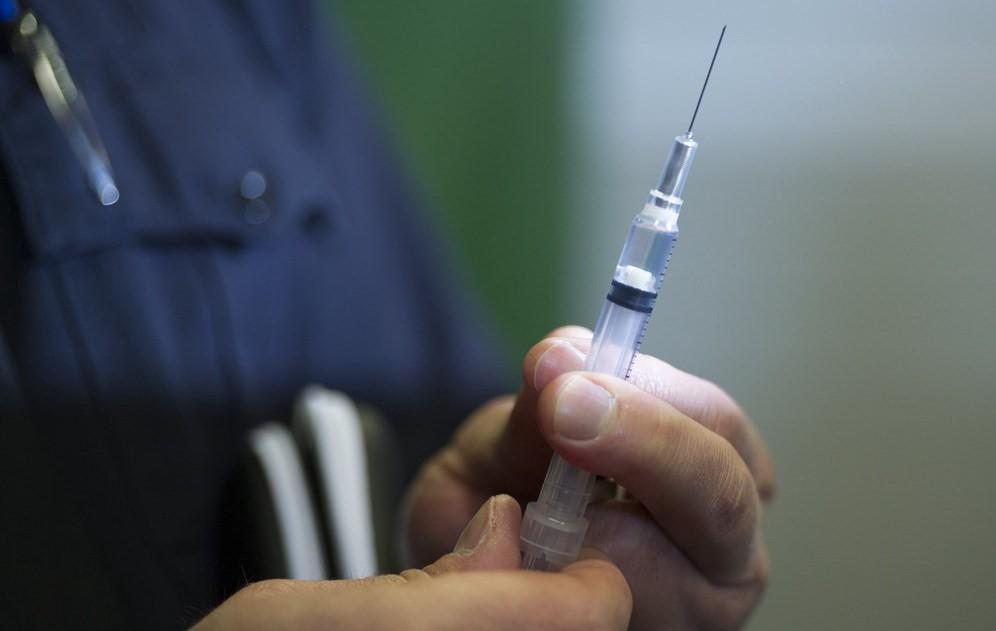Treatment-first approach to the opioid epidemic? Not for local prosecutors
On Thursday, President Trump announced that his administration will soon declare the opioid crisis a national emergency, following the interim recommendation of his Commission on Combating Drug Addiction and the Opioid Crisis. “We’re going to spend a lot of time, a lot of effort and a lot of money on the opioid crisis,” said Trump. “We are going to […]

On Thursday, President Trump announced that his administration will soon declare the opioid crisis a national emergency, following the interim recommendation of his Commission on Combating Drug Addiction and the Opioid Crisis.
“We’re going to spend a lot of time, a lot of effort and a lot of money on the opioid crisis,” said Trump. “We are going to draw it up, and we are going to make it a national emergency.”
It was an about-face from just two days earlier, when Health and Human Services Secretary Tom Price told reporters that the administration already had the necessary resources to address the crisis without declaring it an emergency. It’s unclear why the president changed his mind and decided to heed the proposal from his own committee.
Regardless, the committee’s report has drawn praise for its treatment-first recommendations to stem the opioid overdose crisis, which the report says is killing an average of 142 Americans every day. A far cry from the familiar war on drugs rhetoric of the 1980s and ’90s that contributed to the sentencing policies that continue to fill U.S. prisons, members of Trump’s commission advocate for a public health, rather than law enforcement approach to opioid addiction.
Meanwhile, many local politicians — prosecutors — apparently haven’t gotten the memo. Elected district attorneys across the country are cracking down on opioid use by resurrecting long dormant “drug-induced homicide” laws, triggering lengthy sentences for those who sell or share opioids to individuals who overdose.
“The rhetoric right now is one of compassion, and is one that is focused on health and harm reduction, but the reality is that we’re seeing the criminalization of overdoses,” says Lindsay LaSalle, a staff attorney with Drug Policy Alliance.
While targeting people who sell drugs might seem like a logical way to address the vast number of overdoses or discourage drug use, it’s just not that simple.
“People who are engaged in the behavior of selling or sharing [opioids] often also have an addiction,” says Dr. Yngvild Olsen, board member of the American Society of Addiction Medicine.
“It’s a tempting and perhaps easier response to say well, these are bad people we need to prosecute to the maximum extent of the law,” Yngvild continued, “but in my experience, eight or nine times out of ten, [selling] is how people are managing their disease.”
Beyond the complex reality of who is and isn’t grappling with opioid addiction in tragic overdose scenarios, research illustrates that long prison sentences in the absence of drug treatment don’t deter crime or drive down drug sales or use. District attorneys seeking to impose these sentences may intend to target drug kingpins or high-level dealers, but that’s generally not who is bearing the brunt of the punishment.
In Wisconsin, where 10,000 people have died from drug overdoses since 2000, Fox6 news reporters investigated more than 500 drug-related homicide cases to find out who was getting sent to prison. Their study, released in February, found that of the 100 most recent drug-related homicide cases in southeastern Wisconsin, only 11 defendants were “at least one step removed from the direct sale or delivery of drugs” to the overdose victim. The others charged with homicide were friends or relatives of the victims, or low-level dealers.
“Prosecutors talk about getting the bigger fish or kingpins, but those cases never come to fruition because as a legal matter it’s incredibly difficult to prove murder for someone ten steps removed,” says LaSalle. “But it’s very easy for the person who literally handed the person the drugs.”
To Yngvild, the homicide-charge approach to overdose deaths is misguided, but she understands why prosecutors are taking it. “Communities are being devastated, and people in law enforcement are seeing people lose their lives day in and day out,” she says. “This is something they actually feel like they can do.”
But for those struggling with addiction who are now in prison, many of whom don’t have access to treatment programs, little help is given and few lessons are learned. While the opioid crisis is a relatively new phenomenon, tackling drug use and abuse with the criminal justice system is not. Now it’s up to local prosecutors to take a look at their well-trod history.
